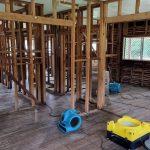When embarking on a drywall installation project, it’s crucial to explore a variety of techniques and strategies that can significantly improve the overall process. Whether you are considering upgrading a room or completely replacing existing drywall, having comprehensive knowledge is essential. Before hiring a handyman, understanding several critical factors can help avoid potential pitfalls. This includes verifying the handyman’s licensing, comprehending the cost of drywall installation, and selecting a qualified professional who meets your specific needs and expectations. Thorough preparation can lead to a smoother, more efficient project, ensuring that your drywall installation meets both functional and aesthetic standards.
Essential Steps to Obtain a Handyman's License for Expert Drywall Installation
For those looking to enter the competitive field of drywall installation, obtaining a handyman's license should be a top priority. While not every state requires this credential, many do mandate it to ensure compliance with local regulations and standards. To determine whether you need a license, start by researching the specific licensing requirements within your state. This knowledge is vital for operating legally and professionally.
For smaller tasks such as painting or minor appliance repairs, most jurisdictions typically do not mandate a handyman’s license. However, for larger and more complex projects, you may need to secure separate licenses for each job, depending on the specific laws and regulations in your locality. Understanding these requirements can prevent legal issues and enhance your credibility as a professional.
In addition to acquiring a handyman's license, securing insurance is imperative for safeguarding against potential liabilities. A contractor's liability and property damage insurance policy protects you from injuries or damages that may occur during the project. If you plan to hire workers for larger jobs, obtaining workers' compensation insurance is also necessary. A thorough review of construction plans will enable you to accurately estimate material and labor costs, allowing you to submit competitive bids while maintaining high quality standards throughout your work.
When applying for a handyman's license specifically tailored for drywall installation, certain requirements must be met. For instance, in Georgia, applicants need to pass trade, business, and law examinations. Additionally, possessing a minimum of two years of hands-on experience as a handyman, along with proof of general liability and workers' compensation insurance, is essential. If your projects exceed $1,000 or involve acquiring construction permits across various jurisdictions—like in Hawaii—you will also need a general contractor's license to operate legally in those areas.
While a handyman's license for drywall installation isn't universally required, it is highly advisable if you plan to undertake more extensive work beyond simple repairs and installations. Each state has different requirements, but they generally involve having liability insurance and the necessary handyman's license to protect against potential legal issues and property damage claims. Being proactive in this regard can significantly enhance your professional reputation.
To excel as a handyman, it’s vital to familiarize yourself with the diverse standards and licensing requirements across different states. Significant discrepancies often exist regarding handyman licenses at the local level, necessitating thorough research if you intend to handle various projects skillfully and effectively, ensuring compliance and quality in your work.
A Comprehensive Overview of Factors Influencing Drywall Installation Costs
The overall cost of drywall installation is influenced by a multitude of factors, including the scope of the project and the types of materials utilized. For instance, larger holes often necessitate complete drywall replacement, significantly impacting the total expense. Moreover, the quantity of materials required will directly correlate with both material and labor costs, making it essential to thoroughly assess the size and complexity of the job before beginning. A skilled handyman can typically complete smaller tasks in just a few hours, making it a practical option for many homeowners seeking quick solutions.
In contrast, extensive drywall repairs due to significant holes or water damage require more time and effort. In severe cases, it may be necessary to remove and replace entire sections of drywall, which often calls for the expertise of a professional with specialized skills. This can lead to higher overall costs for the project, as the complexity of the job increases the demand for skilled labor and quality materials.
Effective planning and preparation are essential components in the drywall installation process. A detailed checklist of supplies and tools is necessary, with the overall cost hinging on both the size of the area and the complexity of the job. Handymen often require additional labor support, especially for larger endeavors. Furthermore, the installation cost can vary based on whether prep work and cleanup are included as part of the project. Complicated ceiling designs or numerous corners can also lead to increased material and labor expenses, highlighting the importance of thorough planning and assessment prior to commencement.
The type of drywall selected can significantly influence the total installation cost as well. Standard drywall is commonly used in most commercial constructions and is available in a range of widths and thicknesses, allowing for flexibility and choice based on specific project requirements. Choosing the right material can optimize both performance and cost-effectiveness in your installation.
As the scale of tasks expands, the expenses can accumulate swiftly. The overall cost is largely contingent upon the project's size and intricacy, with smaller jobs often having a higher cost per square foot. Despite this, drywall remains a more economical option compared to other construction materials, offering a balance between quality and affordability that appeals to homeowners and contractors alike.
While hiring a handyman might seem like a cost-effective choice, engaging the services of a drywall specialist can provide significant advantages. Specialists bring the necessary expertise required for various tasks, from removing popcorn ceilings to constructing drop ceilings. Their experience with taping joints and applying textures ensures a higher quality of workmanship, which can be crucial for achieving a seamless finish. Moreover, they are adept at managing issues such as water damage, hole repairs, and more intricate textures that require a refined skill set.
When selecting a drywall contractor, it’s essential to acquire a detailed contract that clearly outlines the project scope and associated costs. This contract should specify the number of drywall sheets required, the type of material to be used, and a comprehensive breakdown of labor and material expenses. Ensuring that every detail is documented helps maintain transparency and clarity throughout the project, reducing the chances of misunderstandings or disputes.
Essential Considerations for Selecting the Ideal Handyman for Your Drywall Projects
Before committing to a handyman for your drywall installation needs, it's vital to ask several critical questions to ensure you make a well-informed decision. Start by inquiring about the estimated timeline for project completion. Even highly skilled drywall installers may have different schedules, so understanding the timeframe will help prevent dissatisfaction upon project completion and ensure the project aligns with your overall timeline.
It is advisable to interview at least three potential handymen before making your final choice. During these interviews, inquire about their relevant experience and request references from past clients. Confirming that the handyman you select possesses the necessary skills and tools for the job is essential for achieving the best possible outcome. Additionally, ensuring that their services fit within your budget is crucial for a smooth and successful experience.
Next, assess the potential costs associated with drywall installation. By comparing bids from different contractors, you can gain valuable insights into the typical rates for your particular project. A reputable contractor will provide a comprehensive cost breakdown that includes all materials, supplies, and any additional expenses, giving you a clearer picture of the financial commitment involved and helping you avoid unexpected costs.
Verifying credentials and insurance is another pivotal step before hiring a handyman. Obtaining a written contract along with references can provide peace of mind and help you confirm that the handyman is the right fit for your project. Requesting examples of their previous work will bolster your confidence in your decision and ensure that you are choosing a skilled professional with a proven track record.
An effective handyman should possess a diverse skill set, enabling them to manage a variety of tasks beyond just drywall installation. For instance, if your ceiling has a hole that necessitates drywall work, a proficient handyman should also be capable of handling related tasks, such as installing new light fixtures or repairing popcorn texturing, which can save you time and effort by providing multiple services in one visit.
Thoroughly check the handyman's experience and references before making your final choice. An experienced handyman is more likely to execute the job competently, thereby increasing the chances of a successful project outcome. It’s wise to avoid contractors who rely on high-pressure sales tactics or have inflated advertising budgets, as these approaches can often lead to subpar results and dissatisfaction with the final work.
Keep your budget in mind when hiring a handyman for drywall installation. An efficient handyman should be able to complete the job in a timely manner while respecting your property. They should also prioritize cleanliness, ensuring that the workspace remains tidy after the project is complete, which enhances your overall satisfaction and reduces the stress often associated with home improvement projects.
A handyman knowledgeable in plumbing and electrical systems is an excellent choice for addressing leaks or undertaking related tasks. They can assist with a wide range of projects, including hole repairs, light painting, deck repairs, and drywall installations, offering a well-rounded approach to home improvement that can save you time and hassle.
Finding a reliable handyman in your area is entirely achievable with the right approach. Investigate online reviews and seek recommendations from friends and family to identify trustworthy professionals. Additionally, don’t hesitate to ask your handyman for client references to validate their reputation and capabilities, ensuring you make the best choice for your project while avoiding potential pitfalls.
The post How Does a Handyman Do Drywall Installation? appeared first on https://gqcentral.co.uk
The Article Drywall Installation Techniques by a Handyman Was Found On https://limitsofstrategy.com
The Article Handyman Tips for Effective Drywall Installation Techniques First Appeared ON
: https://ad4sc.com







Comments are closed